June 12, 1993, is a date that holds a special place in the history of Nigeria and its people. On this day, the late Chief Moshood Kashimawo Olawale Abiola, popularly known as MKO Abiola, was declared the winner of the Presidential election in the country.
It was a momentous occasion that brought joy and hopes to the hearts of Nigerians, who saw Abiola as the leader who would steer the country toward a brighter future.
Unfortunately, that hope was cut short as MKO Abiola was eventually arrested and detained, and the election results were annulled.
Nevertheless, the memory of June 12 and the legacy of MKO Abiola continue to live on. It serves as a reminder of the struggle for democracy and the rights of the people in Nigeria.
In this article, we will delve into the significance of June 12 and the life of MKO Abiola. We’ll discuss how this event and the historical figure represent the aspirations of the Nigerian people for a better future.
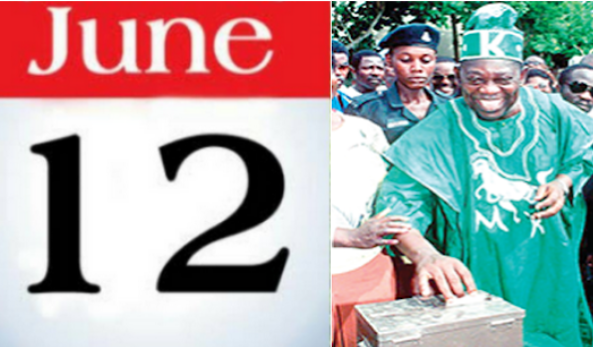
Brief Overview of the Events of June 12, 1933
June 12, 1993, represents Nigeria’s struggle for democracy and the rights of its citizens. On this day, the late Chief Moshood Kashimawo Olawale Abiola was declared the winner of the presidential election.
The election was widely regarded as free and fair, and Abiola’s victory was seen as a triumph for democracy in Nigeria. However, the military government in power at the time annulled the election results. This led to widespread protests and civil unrest.
Following this event, MKO Abiola was detained, and he, unfortunately, died in detention. The death of Abiola sparked outrage and inspired the fight for democracy in Nigeria, with June 12 becoming a symbol of the struggle for people’s rights.
Today, June 12, is celebrated as Democracy Day in Nigeria in honor of Abiola’s legacy and the ongoing struggle for a free and democratic Nigeria.
Innovative Tech Solutions, Tailored for You
Our leading tech firm crafts custom software, web & mobile apps, designed with your unique needs in mind. Elevate your business with cutting-edge solutions no one else can offer.
Start NowBrief Background on MKO Abiola
MKO Abiola, popularly known as Chief Moshood Kashimawo Olawale Abiola, was a prominent Nigerian businessman and politician who rose to national prominence in the 1990s.
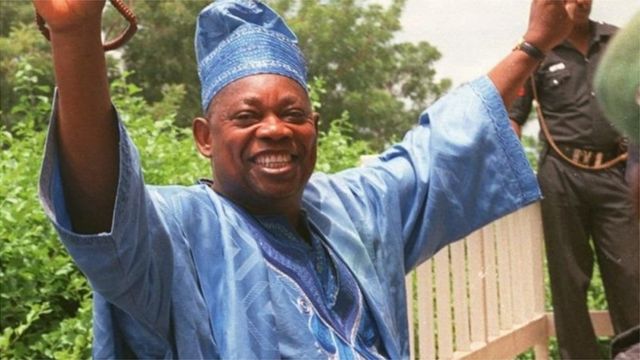
He was born on August 24, 1937, to Yoruba parents in Abeokuta, Ogun State, Nigeria. His father and mother, Salawu and Suliat Wuraola Abiola were produce (primarily cocoa) and kola nut traders, respectively.
Although MKO Abiola began his career as a teacher, he quickly moved into business. He built a vast empire that included publishing, real estate, and telecommunications holdings there.
Abiola became politically active in the 1980s. In 1992, he contested the presidential election as the candidate of the Social Democratic Party (SDP).
Despite widespread allegations of rigging and irregularities, Abiola was declared the winner of the election on June 12, 1993. But the military government at the time annulled the results and arrested Abiola. He was detained for four years, and his death in 1998 sparked widespread protests and civil unrest. It was even reported that around 10 people were killed in overnight clashes between police and protesters.
Nevertheless, MKO Abiola is widely regarded as a hero of the Nigerian people, who fought for their rights and the restoration of democracy in the country. He was a charismatic and passionate leader who inspired millions of Nigerians and helped to motivate the struggle for democracy in the country.
Today, Abiola’s legacy continues to live on. He is remembered as one of Nigeria’s greatest sons, who fought for the rights of his fellow citizens and the restoration of democratic rule in the country.
The Election of June 12, 1993
The June 12, 1993 election marked a significant turning point in the history of Nigeria. It was the first time in the country that a civilian government was democratically elected after decades of military rule.
Without a doubt, this was a special day many looked forward to, considering how the citizens thirsted for an end to military rule.
The June 12 election was highly anticipated. It was seen as an opportunity for Nigerians to exercise their right to choose their leaders and establish a democratic system of government. The election was described as having experienced a high voter turnout.
Millions of Nigerians participated in the process. Then, the contest was between two leading candidates: Chief Moshood Abiola and Alhaji Bashir Tofa.
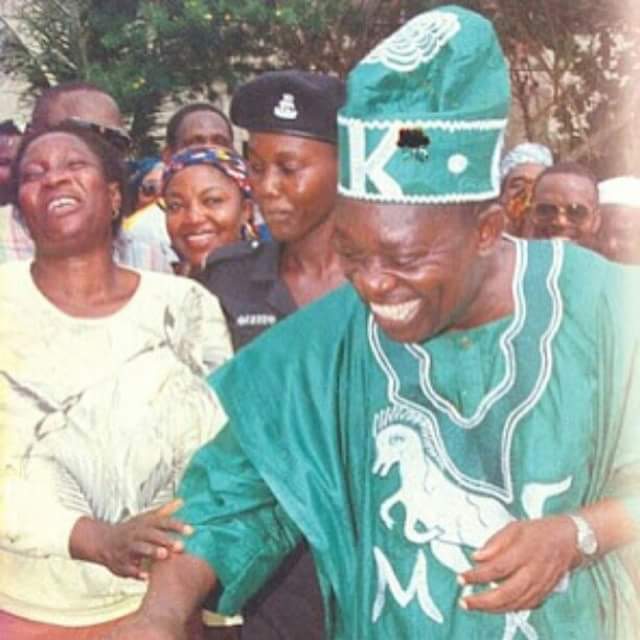
Chief Moshood Abiola was the candidate of the Social Democratic Party (SDP). Alhaji Bashir Tofa, a former diplomat, was the candidate for the National Republican Convention (NRC). Widely regarded as a free and fair election, Chief Abiola was declared the winner. He emphatically received almost 60% of the votes cast.
Annulment and Protests
However, the election results were annulled by the military government led by the Head of State, Ibrahim Babangida. This sparked widespread outrage and protests, with many Nigerians seeing the annulment as violating their democratic rights.
The international community, including the United States and the United Kingdom, widely condemned the annulment of the election result.
Seamless API Connectivity for Next-Level Integration
Unlock limitless possibilities by connecting your systems with a custom API built to perform flawlessly. Stand apart with our solutions that others simply can’t offer.
Get StartedAs a result, General Ibrahim Babangida stepped down as military head of state and transferred power to a civilian government. However, this action only came following pressure from various political, civic, and international organizations. It wasn’t particularly a willing action.
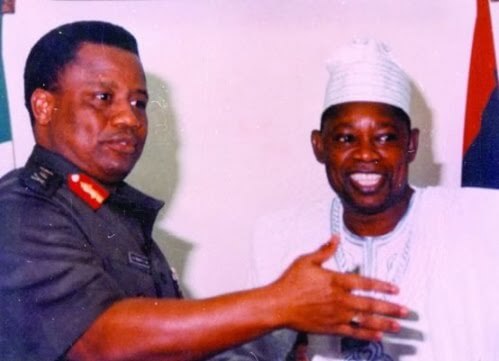
After Babangida stepped down, Chief Ernest Shonekan became the interim head of state before General Sani Abacha took control of the government in a bloodless coup later in the year.
Read: Ernest Shonekan: Biography, Facts, and Impact
Following the annulment of the June 12 election, Nigeria experienced several years of political turmoil. During this period, many activists were arrested and imprisoned for their role in promoting democracy and human rights. However, their efforts eventually resulted in the restoration of democracy in Nigeria in the late 1990s.
The Legacy of MKO Abiola
The legacy of MKO Abiola continues to shape and inspire Nigerians more than two decades after his death. Abiola’s political activism began in the 1980s, and in 1992, he contested the presidential election as the candidate of the Social Democratic Party (SDP).
After winning the presidential election in 1993, he was detained for four years. Consequently, his death sparked widespread protests and civil unrest and cemented his legacy as a symbol of the struggle for democracy in Nigeria.
However, Abiola’s legacy extends beyond his political activism and his role in the struggle for democracy in Nigeria. He was a charismatic and passionate leader who inspired millions of Nigerians. His contributions to the development of the country are widely recognized.
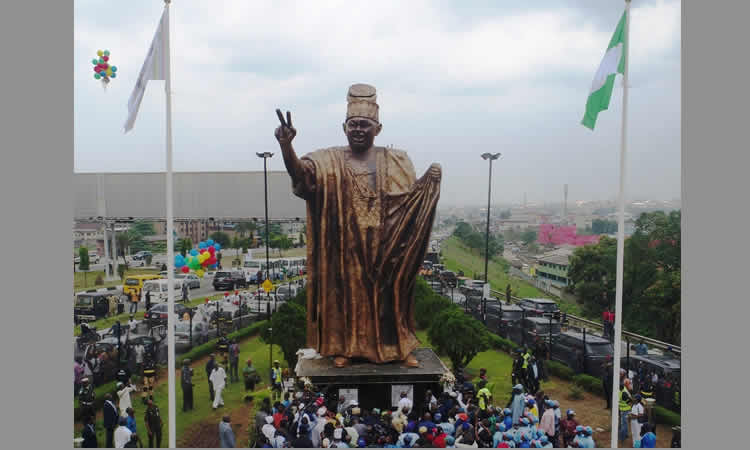
MKO Abiola was also a philanthropist who used his wealth to support education, healthcare, and other initiatives. He also helped build a thriving publishing industry in Nigeria, and his media empire, Concord Group, remains one of the largest in Africa today.
In recognition of Abiola’s legacy, the Nigerian government led by President Muhammadu Buhari declared June 12 a national holiday and named it Democracy Day in 2018. The holiday serves as a reminder of the struggle for democracy in Nigeria and the sacrifices made by Abiola and other activists.
Furthermore, Abiola’s legacy continues to inspire generations of Nigerians. His memory serves as a reminder of the importance of civic engagement and political activism in pursuing a free and democratic Nigeria.
The Significance of June 12 in Nigeria
The events of June 12, 1993, are widely seen as a defining moment in Nigeria’s journey toward democratic rule.
Its significance lies in the fact that it represents the struggle for democracy and the rights of the Nigerian people. The events of that day serve as a reminder of the sacrifices made by activists and ordinary citizens. These people fought for the restoration of democratic rule in the country.
Transform Business with Custom CRM & ERP Solutions
Elevate your operations with a CRM or ERP tailored for you. Let’s build the perfect solution that others can't replicate—crafted to match your business's needs like no other.
Get StartedIn addition, the celebration of June 12 as Democracy Day is a testament to their bravery and a reminder of the ongoing struggle for a free and democratic Nigeria.
June 12 is also significant because it represents the triumph of the people’s will over military rule. The annulment of the election results and the subsequent detention of Abiola were seen as a clear violation of the people’s democratic rights.
Moreover, the protests and widespread unrest that followed this incident showed that the people were willing to fight for their rights. The events of June 12 demonstrate the Nigerian people’s resilience and determination to secure their rights and freedoms, despite the obstacles that may stand in their way.
Before you go…
Hey, thank you for reading this blog to the end. I hope it was helpful. Let me tell you a little bit about Nicholas Idoko Technologies. We help businesses and companies build an online presence by developing web, mobile, desktop, and blockchain applications.
We also help aspiring software developers and programmers learn the skills they need to have a successful career. Take your first step to becoming a programming boss by joining our Learn To Code academy today!
Contact us if you need more information or have any questions! We are readily available











